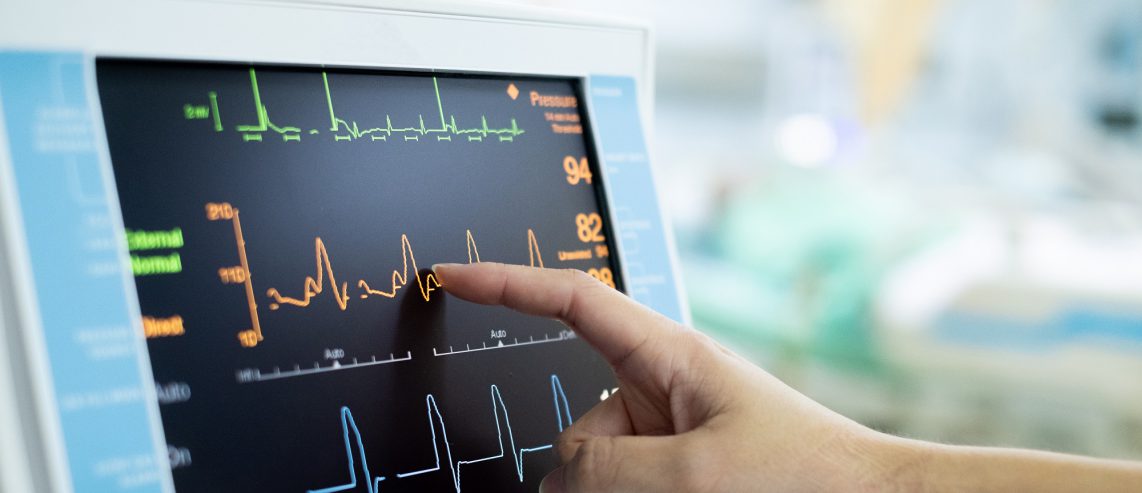Congenital heart disease (CHD) is a heart defect present at birth. Approximately 1 in 100 children born in the U.S. get a diagnosis of a congenital heart defect. Many have heart surgery at a young age.
People diagnosed with CHD require expert, lifelong care for their health issues. The experts at the UPMC Adult Congenital Heart Disease (ACHD) Center can help. They have created a unique, fully integrated model of care for these people.
To learn more about ACHD’s unique model of care, we sat down with two CHD experts. Arvind Hoskoppal, MD, is the director of the ACHD program. Sunil Patel, MD, is a pediatric heart doctor and congenital heart disease expert.
Q: What does having a congenital heart defect mean, and how does that impact you as you age?
Dr. Hoskoppal: CHD is a heart defect that you’re born with. They’re often found at an ultrasound appointment or discovered at an early age. Sometimes don’t cause symptoms and can go undetected for years.
Never Miss a Beat!
Subscribe to Our HealthBeat Newsletter!
Thank you for subscribing!
You can now select the specific newsletters you'd like to receive.
You are already subscribed.
Subscribe to more newsletters in our email preference center.
Sorry, an error occurred. Please try again later.
Get Healthy Tips Sent to Your Phone!
In the United States, over 1 million adults live with CHD. Thanks to the innovations in treatment, people with CHD are living longer. So this number continues to grow.
As these people enter adulthood, they join our ACHD program.
Q: How is a CHD detected?
Dr. Patel: We often find congenital heart defects during pregnancy at the anatomy ultrasound scan. We can also find them soon after birth or into childhood.
Kids with CHD have symptoms including:
- A blueish coloring (cyanosis).
- Shortness of breath during feeding.
- Fainting during activity.
If your provider suspects a CHD, we will perform a series of tests to diagnose the health issue. These include:
- Echocardiogram.
- Electrocardiogram.
- Chest x-ray.
- Heart MRI or CT scan.
Q: Can you grow out of a congenital heart defect?
Dr. Patel: The answer is rarely yes for a few types of heart defects.
For example, an atrial septal defect (ASD) is a hole in your heart. We can diagnose ASD as a child. Some types of ASD can get smaller as the body grows and matures, but others do not.
That is why we still suggest that people with ASD continue to see a heart doctor for expert care.
Q: If people with CHD undergo heart surgery at a young age, how long should they get follow-up care?
Dr. Hoskoppal: People with CHD should see an expert for life. But many people with CHD don’t. That’s due to a lack of awareness that this expertise exists.
Often people don’t realize the importance of follow-up care. Problems can become a serious health issue. But consistent follow-up with an expert allows us to detect and treat these problems early.
At UPMC, we have a single coordinated program centered around the needs of the people we treat. Our program operates on a unified, system-wide model.
UPMC Children’s, UPMC Presbyterian, and UPMC Magee-Womens Hospital are the hubs for clinical care. These locations and our regional facilities allow us to provide full service for the entire spectrum of people we treat at ACHD.
Q: How do people transition from child to adult CHD care?
Dr. Patel: I start discussing the transition process with kids and their families around age 16. The process begins around age 18 when they are ready to take ownership of their care. This process takes time and differs with each person.
Our goal is to reduce the anxiety of the person and their family. The person needs to have continued follow-up without interruption in care. Our dedicated team makes this transition process seamless.
We help people understand their insurance needs, be comfortable with their new provider, and address logistical challenges.
Q: Are there different types of CHD?
Dr. Hoskoppal: Yes. There are over 20 or 30 different types of CHD. To keep it simple, we divide it into three categories based on severity: simple, moderate, and complex.
Some CHDs, like Tetralogy of Fallot (TOF) and atrial septal defect, are more common. There are others, like Ebstein’s anomaly, that are less common.
At UPMC, we manage and treat every form of CHD. Our combined team of experts provides highly focused care to people of all ages. We use advanced, less-invasive treatments and have excellent outcomes.
Q: Can people with CHD exercise and live normal lives?
Dr. Hoskoppal: Yes, people with CHD, whether children or adults, can lead a normal life with the proper care. Many people we see have jobs and families and play sports (with some limits).
People with CHD can still exercise and be active. There may be some limitations based on your health issues. We encourage you to discuss any necessary restrictions with your or your child’s heart doctor.
As with any other person, we also suggest living a heart-healthy lifestyle. Maintaining a healthy weight, exercising regularly, and eating a balanced diet help everyone stay healthy.
About Adult Congenital Heart Disease Center
The UPMC Adult Congenital Heart Disease (ACHD) Center is a joint program between UPMC Children’s Hospital of Pittsburgh and UPMC Heart and Vascular Institute. We provide long-term care for adolescents, young adults, maternal patients, and adults with congenital heart disease. Our goal is to provide complete care from your childhood all the way through your life. Our team of experts has a wide knowledge of heart conditions.
